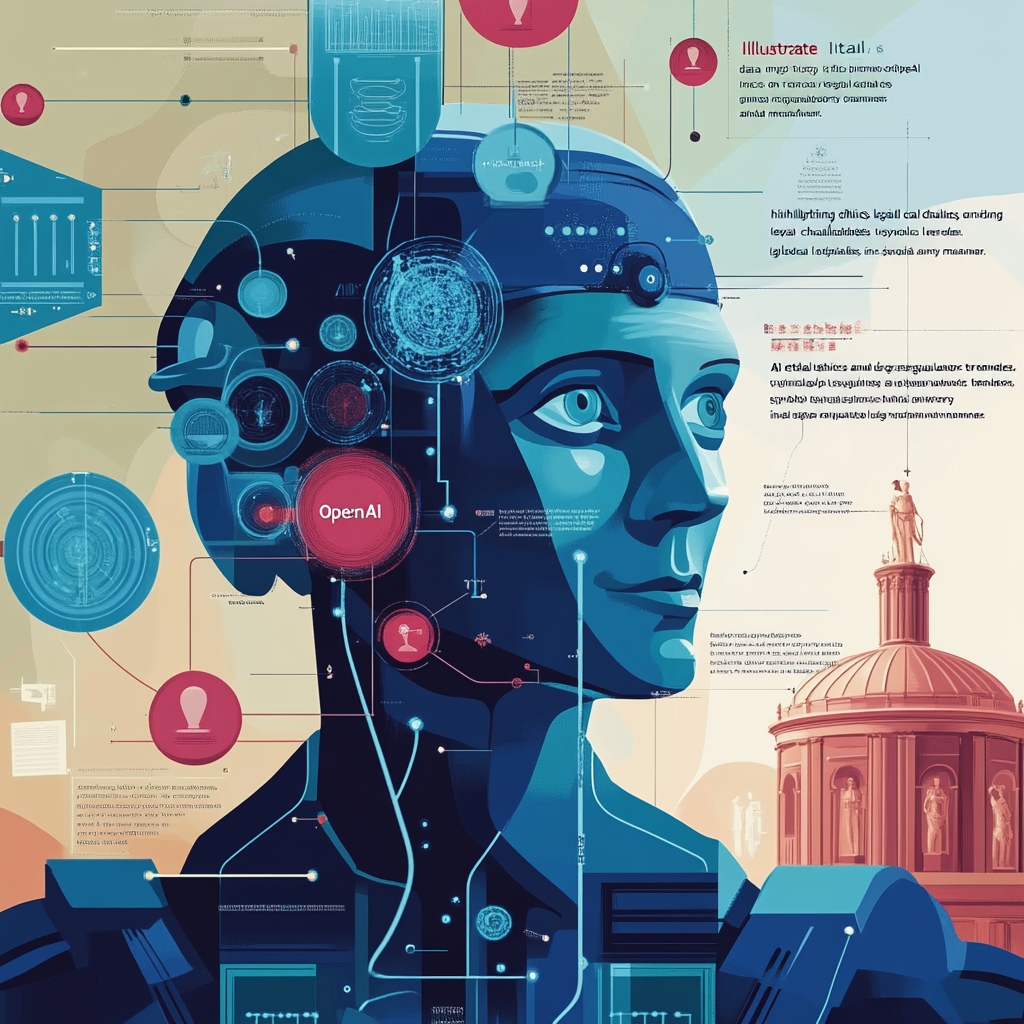
Italy Fines OpenAI Over ChatGPT Data Privacy Breach
Ah, the digital world we inhabit is as rich and convoluted as any other, but it comes equipped with a different set of rules—a thrilling yet sometimes unnerving set of dynamics. One recent plot twist in this ever-evolving narrative revolves around the Italian Data Protection Authority, often simply referred to as the Garante. Their latest saga involves none other than OpenAI, the mastermind behind the popular AI chatbot ChatGPT. Buckle up as we traverse through the lessons on data privacy and AI ethics highlighting Italy’s latest crusade.
Let’s dive straight into the heart of the matter. Imagine a fine that rattles the digital realm—a whopping €15 million, to be exact. This fine wasn't merely an expression of financial woe; it was also a wake-up call echoing through the skyscrapers of Silicon Valley and beyond. The Garante unleashed this hefty penalty after conducting an investigation into OpenAI's data collection practices relative to training ChatGPT. You see, it appears that OpenAI had a bit of a mishap, when they casually overlooked some GDPR regulations. But what's more salacious (if you can call it that) is the mandate that comes with the fine: a campaign across Italian media set to educate us common folk about data collection and our rights. It’s like a public service announcement—just with a hefty price tag.
Let’s pull the curtain back on the violations that led to this dramatic moment. First and foremost was the conspicuous absence of a legal basis for using personal data to train ChatGPT. Picture this: it's like hosting a glorious feast without even bothering to check who has RSVP’d. Such negligence towards transparency can’t be excused in the realm of digital interactions, especially when it’s about personal information. Transparency is the name of the game, and OpenAI seemed to be playing hide-and-seek instead.
And then there’s the age verification issue. How does one let a child wander unsecured into a playground filled with unpredictable AI-generated content? OpenAI neglected to devise an adequate age verification system, throwing wide open the gates for minors under 13. Imagine letting kids play with fire without telling them it's hot! It’s pure folly in a world where safeguarding our youngest is paramount.
Next on our list, there was also a delightful twist that led to a data breach back in March 2023. A bug surfaced, allowing ChatGPT to spill the beans—partial payment details and chat histories of users were laid bare. Approximately 1.2% of subscribers were involuntarily invited to this unintentional data party, proving once again that in the digital age, nothing stays secret for long.
Italy’s Garante was not merely flexing its muscles for the sake of posturing. Their stance reflects a broader wave of scrutiny that regulators are applying to AI companies globally. This isn’t Italy's first tango with OpenAI—earlier, the Garante slapped a temporary block on ChatGPT for similar concerns and even put the brakes on another AI chatbot, Replika. It seems the Italian watchdog has an unwavering commitment to protecting citizens in the digital age.
To add more fuel to the fire, the European Union is in the process of concocting its AI Act. Think of it as an intricate rulebook to govern how AI operates within the eurosphere, setting much-needed guidelines while other nations, such as the United States, feverishly draft their own regulations. As we march forward into this brave new world, the idea is that no AI company will be above the law.
Now, let’s take a moment to ponder OpenAI's reaction to this avalanche of scrutiny. Labeling the fine as “disproportionate,” they had the audacity to announce plans for an appeal. They noted that this penalty dwarfs the revenue they generated in Italy during the same period. Now there’s a curveball—it’s quite the balancing act, is it not? OpenAI still pledged its willingness to collaborate with privacy authorities to ensure their tech respects the irreplaceable concept of privacy. Isn't it marvelous how these tech giants navigate the winding paths of algorithmic morality?
But here’s where things get thoroughly interesting. The required public awareness campaign is not just busywork; it’s a necessary effort to demystify AI practices among the public. The campaign will illuminate how ChatGPT collects data, elucidate user rights under the esteemed GDPR, and emphasize the crucial nature of age verification to protect our younger audience. Knowledge is power, and when wielded properly, it can hold companies accountable.
One can’t help but marvel at the implications of this unfolding story. Italy's decision to impose such a strong penalty is much more than an isolated incident; it serves as a striking wake-up call for AI companies worldwide. Companies working on the cutting edge of technology need to play ball—meaning they must actually respect privacy regulations. As artificial intelligence becomes more entwined in our daily lives, maintaining a keen awareness of data privacy is not just wise; it’s imperative.
As we stand on this precipice of technological advancement, the need for balance is crystal clear—our rights must be preserved, and data privacy must never be a mere afterthought. The digital age beckons, offering us all glittering possibilities, but with the caveat of responsibility hovering over our heads.
For those who are keen to stay tuned into this riveting landscape of AI and data privacy, staying informed is your best ally.
In a rapidly changing world where every click and keystroke matters, the balance of data ethics and innovation requires your attention. So, if you can't resist the allure of the latest updates and ethical discussions surrounding neural networks and automation, fear not! Stay connected, stay engaged, and let's voyage through this digital odyssey together.
Want to stay up to date with the latest news on neural networks and automation? Subscribe to our Telegram channel: @channel_neirotoken

